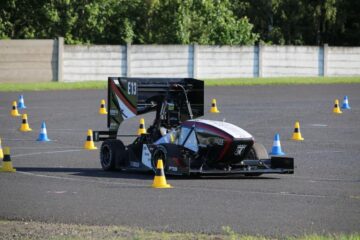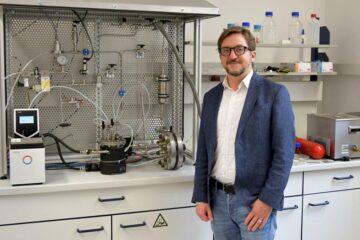HypoPlant – Production of hypo-allergenic glycoproteins in plants

Glycoproteins (GPs) are of prime interest in medical sci-ence. However, the production of GPs by standard methods is still complex and expensive. Plants have been suggested as potential cost-effective and safe GP-production systems; however, major differences in the final steps of biosynthetic pathways in mammals and plants lead to different glycosylation patterns, provoking an immune response when treating humans with GPs produced in plants.
Challenge State-of-the-art approaches utilize glycosylation mutants or overexpression of the desired protein product (intending to override the cellular glycosylation machinery), although such mutants either show impaired yield or loss of vitality in com-parison to wild type. Also, rarely glycan components termi-nate in mannose residues, which is essential for uptake via mannose receptors in patients with lysosomal storage dis-eases. This invention provides a new tool to generate GPs with hypo-allergenic properties in a cost-effective way: In con-trast to current methods, the new technique enables effec-tive production of heterologous GPs by vital plants without impair¬¬ments. The technology is based on genetic modifica-tion of the plant glycosylation pathway. The technology is applicable to Solanaceous and other plants of agronomical interest. Suppression of a specific enzyme results in a general reduction of cross-reactive car-bohydrate determinants (CCD) in all tissues, leading to GPs that are better tolerated and taken up by humans.
Weitere Informationen: PDF
PROvendis GmbH
Tel.: +49 (0)208/94105 10
Ansprechpartner
Dipl.-Ing. Alfred Schillert
Media Contact
Alle Nachrichten aus der Kategorie: Technologieangebote
Neueste Beiträge

Ideen für die Zukunft
TU Berlin präsentiert sich vom 22. bis 26. April 2024 mit neun Projekten auf der Hannover Messe 2024. Die HANNOVER MESSE gilt als die Weltleitmesse der Industrie. Ihr diesjähriger Schwerpunkt…

Peptide auf interstellarem Eis
Dass einfache Peptide auf kosmischen Staubkörnern entstehen können, wurde vom Forschungsteam um Dr. Serge Krasnokutski vom Astrophysikalischen Labor des Max-Planck-Instituts für Astronomie an der Universität Jena bereits gezeigt. Bisher ging…

Wasserstoff-Produktion in der heimischen Garage
Forschungsteam der Frankfurt UAS entwickelt Prototyp für Privathaushalte: Förderzusage vom Land Hessen für 2. Projektphase. Wasserstoff als Energieträger der Zukunft ist nicht frei verfügbar, sondern muss aufwendig hergestellt werden. Das…

















